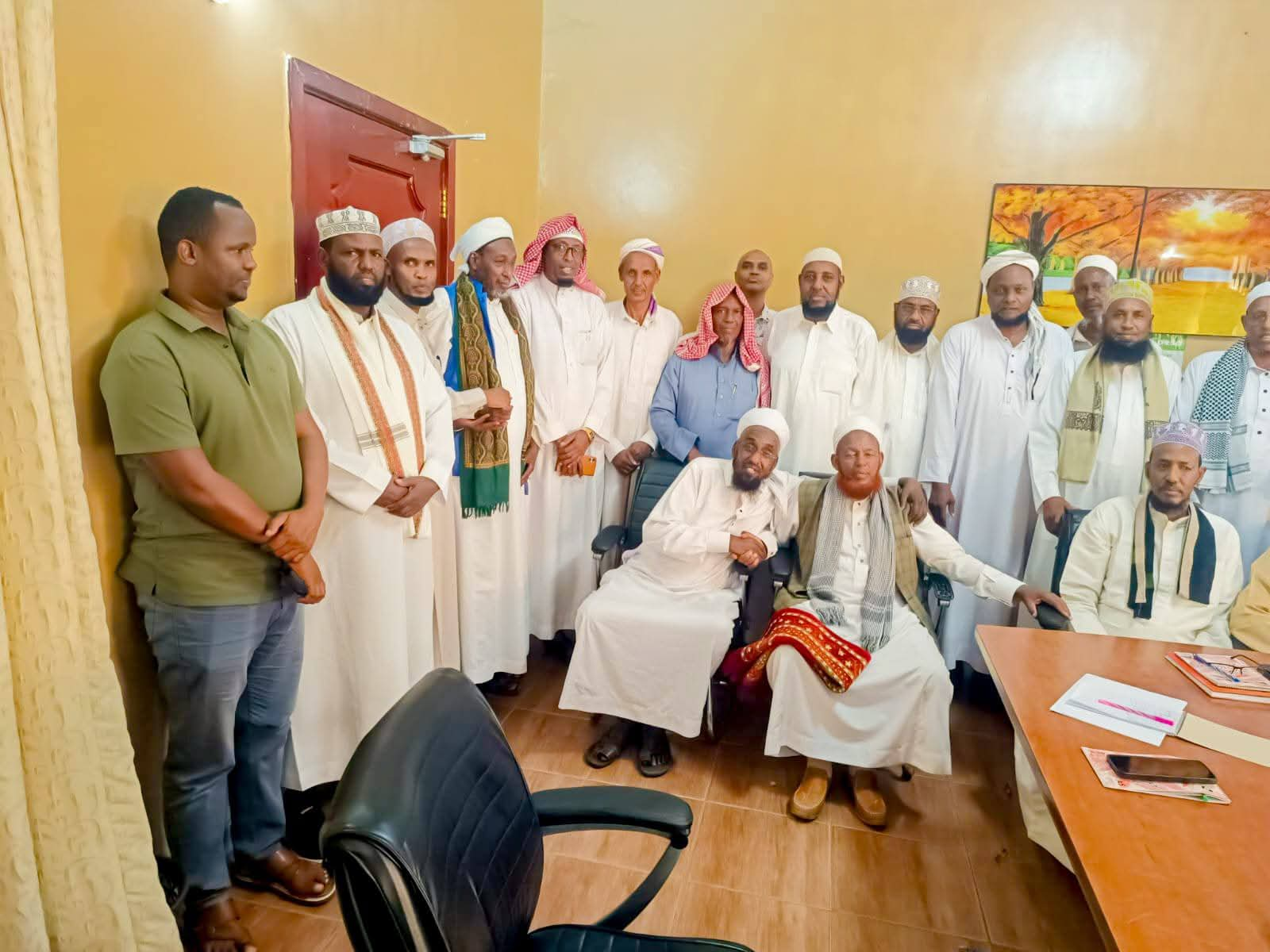Peace restored at Quba Mosque after mediation ends months-long dispute

The Quba Islamic Centre in Garissa, a key hub for the Jama’at Tabligh, an international Islamic missionary movement, had been paralysed by leadership wrangles since April.
One of northeastern Kenya’s most prominent mosques has reopened after weeks of closure, following a rare and bitter dispute that had split worshippers.
The Quba Islamic Centre in Garissa, a key hub for the Jama’at Tabligh, an international Islamic missionary movement, had been paralysed by leadership wrangles since April.
The matter escalated into clan rivalry and even produced the extraordinary spectacle of rival imams leading prayers side by side.
What began as a contest over management quickly spiralled into violence along clan lines.
It left several people injured and prompted authorities to shut the mosque on 19 August to prevent further bloodshed.
Efforts by local security agencies and community leaders to broker peace had faltered.
But this week, mediation led by Garissa County governor Nathif Jama, working in concert with the Supreme Council of Kenya Muslims (Supkem), delivered a breakthrough.
After days of talks, elders and scholars persuaded both sides to sign an agreement aimed at restoring unity on Monday at the county headquarters.
“Garissa will never again hear any feuds and disagreements among the Quba-based scholars,” Jama said afterwards.
He praised the Jama’at Tabligh for their “tireless efforts in promoting moral values and spreading the Islamic faith.”
The reconciliation meeting drew senior clerics including Sheikh Hussein Burale, Sheikh Mohamed Daud, Sheikh Dr. Ali Tawane and Sheikh Abdirahman Adow, alongside SUPKEM Secretary General Abdullahi Salat, security officials and local administrators.
Garissa is a predominantly Somali Muslim region near the Somali border and has long been vulnerable to both clan rivalry and al-Shabaab insurgent threats.
The reopening of Quba Mosque offers more than just a return to normal worship.
“We were forced to pray in open spaces for weeks,” said Mohamed Abdi, a congregant.
“It feels like our community has finally breathed again.”
SUPKEM, Kenya’s national Muslim body, has often been called on to mediate intra-community disputes.
Recent scenes at Quba, including the simultaneous sermons by two imams, had shocked even seasoned observers.
SUPKEM Secretary General Abdullahi Salat urged clerics to choose guidance over division, warning that the dispute risked tarnishing Garissa’s reputation as a centre of Islamic learning.
The resolution also comes at a politically delicate time for Governor Jama, who faces criticism over alleged mismanagement of county funds.
Khalid Osman, a political observer, said by taking personal charge of the talks, the governor has positioned himself as a defender of communal harmony at a moment of political vulnerability.
